第93章 III(5)
These were significant episodes; but a still more serious manifestation of Victoria's temper occurred in the following year, during the crowning crisis of Beaconsfield's life. His growing imperialism, his desire to magnify the power and prestige of England, his insistence upon a "spirited foreign policy," had brought him into collision with Russia; the terrible Eastern Question loomed up; and when war broke out between Russia and Turkey, the gravity of the situation became extreme. The Prime Minister's policy was fraught with difficulty and danger. Realising perfectly the appalling implications of an Anglo-Russian war, he was yet prepared to face even that eventuality if he could obtain his ends by no other method; but he believed that Russia in reality was still less desirous of a rupture, and that, if he played his game with sufficient boldness and adroitness, she would yield, when it came to the point, all that he required without a blow. It was clear that the course he had marked out for himself was full of hazard, and demanded an extraordinary nerve; a single false step, and either himself, or England, might be plunged in disaster. But nerve he had never lacked; he began his diplomatic egg-dance with high assurance; and then he discovered that, besides the Russian Government, besides the Liberals and Mr. Gladstone, there were two additional sources of perilous embarrassment with which he would have to reckon. In the first place there was a strong party in the Cabinet, headed by Lord Derby, the Foreign Secretary, which was unwilling to take the risk of war; but his culminating anxiety was the Faery.
From the first, her attitude was uncompromising. The old hatred of Russia, which had been engendered by the Crimean War, surged up again within her; she remembered Albert's prolonged animosity; she felt the prickings of her own greatness; and she flung herself into the turmoil with passionate heat. Her indignation with the Opposition--with anyone who ventured to sympathise with the Russians in their quarrel with the Turks--was unbounded. When anti-Turkish meetings were held in London, presided over by the Duke of Westminster and Lord Shaftesbury, and attended by Mr. Gladstone and other prominent Radicals, she considered that "the Attorney-General ought to be set at these men;" "it can't," she exclaimed, "be constitutional." Never in her life, not even in the crisis over the Ladies of the Bedchamber, did she show herself a more furious partisan. But her displeasure was not reserved for the Radicals; the backsliding Conservatives equally felt its force. She was even discontented with Lord Beaconsfield himself. Failing entirely to appreciate the delicate complexity of his policy, she constantly assailed him with demands for vigorous action, interpreted each finesse as a sign of weakness, and was ready at every juncture to let slip the dogs of war. As the situation developed, her anxiety grew feverish. "The Queen," she wrote, "is feeling terribly anxious lest delay should cause us to be too late and lose our prestige for ever! It worries her night and day." "The Faery," Beaconsfield told Lady Bradford, "writes every day and telegraphs every hour; this is almost literally the case." She raged loudly against the Russians. "And the language," she cried, "the insulting language--used by the Russians against us! It makes the Queen's blood boil!" "Oh," she wrote a little later, "if the Queen were a man, she would like to go and give those Russians, whose word one cannot believe, such a beating! We shall never be friends again till we have it out. This the Queen feels sure of."